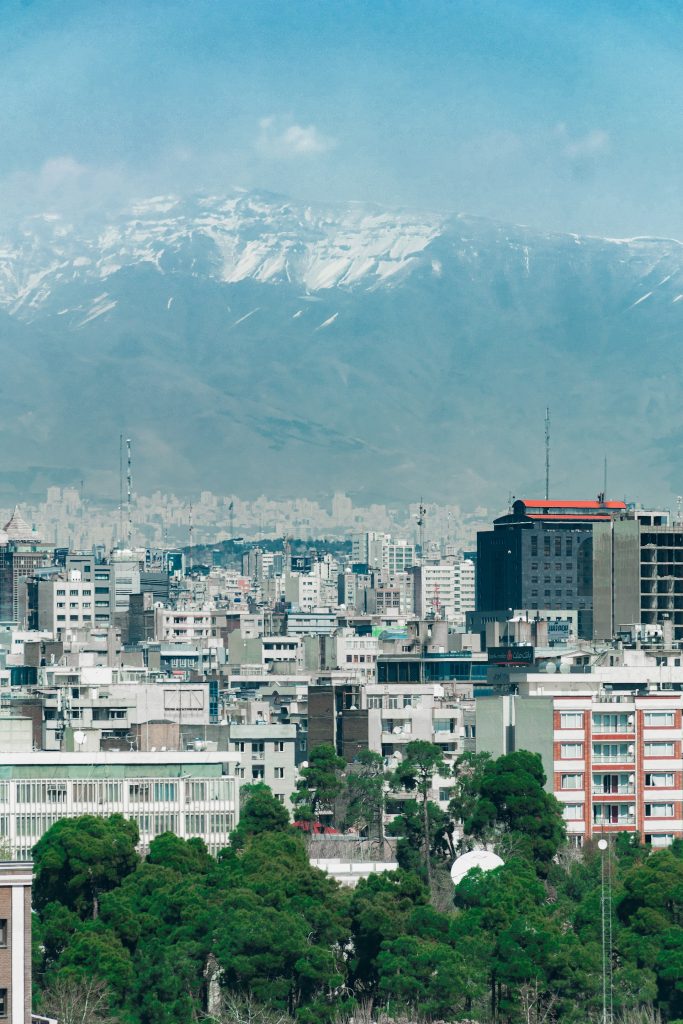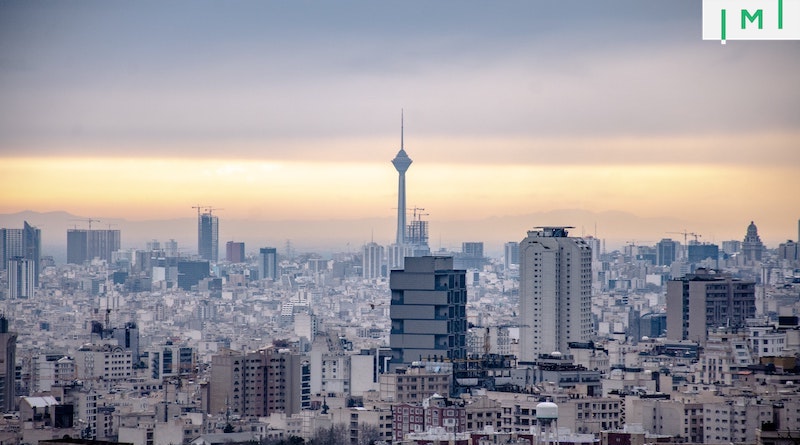Iran: Investment Migration’s Sleeping Giant
By Contributor
The Islamic Republic has long been off the radar when it comes to country-specific target markets in the investment migration circuit. As things stand, its passport holders are barred from nearly every single program out there with very few exceptions.
Make no mistake; this shortsighted policy is largely down to fear of retribution from the United States rather than inherent security or due diligence concerns over onboarding Iranians. It is quite paradoxical that all the blacklisted nations happen to be fertile ground for the sale of second citizenship. Iran, with an 88-million-strong, outward-looking population, serves as the perfect case in point.

The ongoing nationwide demonstrations are indicative of the ideological polarity between those at the helm and ordinary civilians. Self-inflicted isolationism for decades on end has incidentally been conducive to a romanticising of the West in the eyes of Iran’s youth. Having said that, mobility constraints remain a key impediment. The Iranian travel document boasts visa-free access to a mere 49 countries and looks set to plummet further as unrelenting domestic upheaval could stoke fears of a spike in asylum claims by its nationals. Even well-intentioned and financially sound travelers risk being flagged as undesirables and having visa applications arbitrarily rejected in certain instances.
While international observers and foreign policy experts pin their hopes on societal reform being brought about from within, a growing pool of domiciled Iranians considers this prospect not just farfetched but a lost cause altogether. Given the repression they have been subjected to since the 1979 revolution, the only viable off-ramp at their disposal is citizenship-by-investment. Relocating to immigrant-friendly countries which offer permanent residence is a long shot as aspiring émigrés whose patience has worn thin with the current regime are not prepared to play the waiting game anymore.
If anything, the case study of Iran sheds light on the merits of fast-track naturalisation and the extent to which one’s fortunes can take a turn for the better via such an investment. It is worth recalling that the West Asian nation has an exceptionally high literacy rate among men and women alike, relative to the rest of the region. The Iranian diaspora has made a name for itself in some of the world’s most advanced economies by excelling in all sorts of professional endeavours, from trade and politics to arts, culture, and academia. Against all odds, Iran continues churning out brilliant human capital with the skills and talent to thrive in any corner of the globe.
The Added Value of Second Citizenship
It is no secret that the notion of attaching a monetary value to nationality has not gone down well in the European Union. The RCBI industry faces intense scrutiny and severe headwinds from its leaders, who are determined to stamp out the practice of selling citizenship. Welcoming Iranian clients back into the fold tacitly demonstrates that there are noble grounds to pursue such an option when all other avenues have either been exhausted or are too time-consuming.
Contrary to popular belief, citizenship by investment is not all about the travel perks associated with acquiring a strong passport. Granted, the ability to simply board a plane and head to any country of significance on short notice is priceless. This is especially so for businessmen and C-suite executives who routinely take part in conferences abroad and can ill afford to leave their passports at foreign embassies for weeks on end.
Despite this, there is a lot more to switching allegiances than not having to fret over the entry requirements of the destination in question. When it comes to Iran, apolitical ordinary people, as opposed to senior officials, bear the brunt of Western-led sanctions and face all sorts of hurdles in their everyday lives.
For starters, opening a bank account as an Iranian is nearly impossible. An intrinsic pillar of the maximum pressure campaign was to reprimand any financial institutions that facilitated transactions on behalf of Iranian entities or beneficiaries. Iran lingers on the Financial Action Task Force (FATF) blacklist, and its banks have been excluded from SWIFT. This has proven particularly problematic for its overseas-based entrepreneurs unable to access credit facilities and tourists who need to travel with hordes of cash when outside Iran. While becoming an OECS citizen is, by no means, a guaranteed workaround to re-enter the fray, it is a much safer bet for those with cross-border exposure and commercial dealings who rely heavily on seamless banking.
Second passports are increasingly being touted as a robust 21st-century insurance policy to insulate oneself against unseen events – geopolitical or otherwise. Anyone who chooses to become a dual citizen rarely undertakes a decision of this magnitude without considering the welfare of their immediate family members. This option is tantamount to a lifeline for Iranian women whose career prospects are stifled back home. Establishing a sense of belonging outside their homeland opens up a whole host of opportunities and civil liberties, for which they yearn. The discretion to just pack up and leave gives this contingent greater leverage over their government and can even be a catalyst for constructive social change if the brain drain is acute enough.
Rethinking the Iran Ban
CBI countries that continue shunning Iranian applicants are engaging in herd behaviour as opposed to acting within reason. The ongoing war in Ukraine has seen the same nations essentially strong-armed by greater powers into prohibiting Russians and Belarusians from their programs. Capitulation sets a dangerous precedent for the Caribbean states and Vanuatu as external forces will continue infringing on their sovereignty if given a free hand to do so. Welcoming Iran back into the fold is not only a logical move in terms of offsetting the lost business from wealthy Muscovites, but also sends a clear signal that their independence is a red line.
With the nuclear talks stalling of late and Iran being accused of supplying Russia with arms, there is every likelihood that the European Union may consider imposing supplementary sanctions on Tehran. Such punitive measures will almost certainly see inquiries for second passports go through the roof. The emphasis should be on instituting a rigorous vetting procedure and assessing files on a case-by-case basis instead of outright banning any given nationality. It is high time that Antigua, Malta, St. Kitts, and Vanuatu took heed of the existing political landscape and reaped the fruits of naturalising a fiercely patriotic people eager to start afresh and contribute to society.
Countries in the regional vicinity are fast coming to terms with Iran’s rising influence amid an increasingly multipolar world order. Even the Persian Gulf states that have historically had an adversarial approach towards their bigger neighbour are now taking overtly reconciliatory steps to mend bilateral ties. These shifting sands may well encourage wealthy Iranians to zero in on the UAE, which has an attractive golden visa program in place. As an expat-friendly economy with an inherently pro-business climate, it would come as no surprise to see citizens of Iran flock there in light of ongoing rapprochement, coupled with the regularity of flights between Dubai and Tehran.
Turkish citizenship-by-investment is also open to Iranians in pursuit of a stronger travel document. Despite the minimum investment threshold rising to US$400,000 earlier this year, Iranian buyers are snapping up properties in Turkey’s big cities. Besides the stability, freedom, and low cost of living its people enjoy, investors are bullish on the country’s geopolitical outlook and the roadmap of neutrality between East and West being pursued by the Turks. There are also talks of Armenia launching its own CBI scheme in the near future, which will surely hit home with affluent Iranians given the geographical proximity and cultural overlap these rich civilisations share.
There is a clear case to reconsider the exclusion of Iran’s lucrative clientele from the bulk of RCBI offerings. It is anyone’s guess whether St. Lucia’s praiseworthy policy U-turn vis-à-vis Iranians will serve as a long overdue wake-up call to other industry heavyweights missing out on a crucial market.


